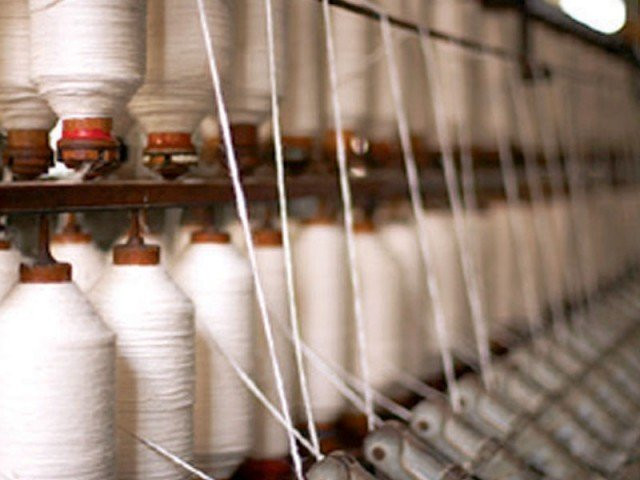Trade with Iran: Areas Pakistan is looking to tap
Five-year bilateral trade roadmap seeks diversification

Five-year bilateral trade roadmap seeks diversification. PHOTO: FILE
Desperate to take the much-awaited step towards reviving trade relations, Pakistan is mulling enforcing its five-year bilateral trade roadmap, already envisaged with an ambitious target of $5 billion, up from the present $270 million.
Long way still to go: Treading with caution in trade with Iran
Unlike the past, Pakistan now wants to move away from certain commodities and wants to expand and diversify its exports.
The key potential trade areas Pakistan is eyeing are rice, horticulture, sports goods, surgical equipment, information technology, textile goods and construction material.

“The post-sanction scenario means we could have a significant market waiting for us,” said a senior Ministry of Commerce officer, directly involved in Iran-related issues.
He said Pakistan earlier relied mostly on fruit, rice and wheat exports but now seeks diversification ranging from textiles to IT services. “On the other hand, we could import petroleum products, electricity, leather, chemicals, fruits and vegetables from Iran,” he said.
He further said that the government had formulated a five-year bilateral trade roadmap which would facilitate the private sector. However, until the time formal banking channels are opened, an interim credible payment mechanism with Iran needs to be put in place by the State Bank of Pakistan (SBP) in consultation with the Central Bank of Iran (CBI).
At the same time, keeping in view the substantial potential existing for export of textiles from Pakistan to Iran, the Ministry of Commerce and TDAP are planning to hold a single country exhibition in Tehran, primarily on textiles, in the first half of 2016.
At the same time, Iran has conveyed its willingness to set up two additional crossing points at Gabd (Pakistan)-Reemdan (Iran) and Mand (Pakistan)–Pishin (Iran). At present, there is only one international crossing point on Pak-Iran border at Taftan (Pakistan) and Mirjaveh (Iran).
The Ministry of Commerce has conveyed its concurrence to the Ministry of Interior for opening the two crossing points.
The commerce ministry has also proposed that the Ministry of Finance be directed to post custom officials at the said posts.
“Allowing barter trade for the border community is also under consideration. That will be one a good source of business for small traders on both sides of the border,” added the official.
What the private sector has to say
There is no doubt that establishment of banking channels will pave the way for bilateral trade.
But while the government is eager to move ahead with its roadmap and organising single-country exhibitions, the private sector is sceptical on the way forward.
“We have not started official marketing for the single-country exhibition in Iran, but we are noticing a great level of interest in agro-based industries, fruits and vegetables exporters and footwear sector who want to participate in the exhibition,” Trade Development Authority of Pakistan (TDAP) Secretary Rabiya Javeri Agha told The Express Tribune.
Despite enormous trade potential, officials of TDAP – the country’s top body to promote exports – say the speed of progress in business and trade will only increase once the two countries settle down issues over banking channels.
The textile industry, which constitutes more than 50% of the country’s exports, believes Pakistan can increase its exports to Iran but it will require close coordination between the private and public sector.
“There is a ‘huge’ export potential in Iran,” Pakistan Readymade Garments Manufacturers & Exporters Association (PRGMEA) Central Chairman Shaikh Mohammad Shafiq reiterated.
Pakistani rice is one of the few traditional items that Iran imports. As far as rice exports to Iran are concerned, some are hopeful while others say the situation will take a long time to improve.
Regional trade: Pak-Iran border being upgraded
“The Iranians have been placing orders with us in the recent past, but we were unable to meet them due to the absence of banking links. This has badly hurt our share in Iran as India has taken over by doing currency swap deals even during sanctions,” Rice Exporters Association of Pakistan Chairman Muhammad Shafique said.
Published in The Express Tribune, February 15th, 2016.
Like Business on Facebook, follow @TribuneBiz on Twitter to stay informed and join in the conversation.



















COMMENTS
Comments are moderated and generally will be posted if they are on-topic and not abusive.
For more information, please see our Comments FAQ